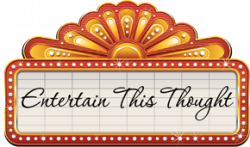Written by Vern Thiessen
Directed by Susan Ferley
Performed by Shane Carty, Jerry Etienne, Adrienne Gould, Claire Julien, Haysam Kadri, Darren Keay, William Vickers
Grand Theatre, London
February 7 to 25, 2006
Reviewed by Mary Alderson
Einstein’s Gift: Thought-provoking and entertaining theatre
One might think that Einstein’s gift was his genius. But in the current production at the Grand Theatre, Einstein’s gift is the spirituality that he gives to his colleague Fritz Haber. This makes the title of the play that much more intriguing – Einstein, by his own admission, was a non-practising, non-observant Jew.
Einstein’s Gift is the story of Fritz Haber, with Albert Einstein as the narrator. The story itself is what makes this a great play, and credit goes to Canadian playwright Vern Thiessen who brilliantly turned a fascinating true story into a great stage play. Director Susan Ferley recognized the quality of the play and assembled a cast of superior actors to present this interesting tale. All the key roles are filled by Stratford Festival regulars.
Einstein and Haber are colleagues – scientists, researchers and professors, as the 20th century unfolds. Einstein, played by Haysam Kadri, leads the audience to believe they are friends, while Haber (Jerry Etienne) views their relationship as almost adversarial. Einstein loves the theory behind science and shows little interest in the end results of his work, while Haber, the elder of the two, appreciates science only for its practical uses.
We learn more about Haber through his relationships: with his two wives, Clara Immerwahr (Claire Jullien) and Charlotta (Adrienne Gould), and with his research assistant Otto (Shane Carty). Completing the cast is William Vickers as the Christian deacon and the Nazi government minister, and Darren Keay in various supporting roles.
When we meet Haber, he is frustrated by being rejected for university professorships because he’s a Jew. He forsakes his Jewish faith and is baptized a Christian, as he realizes this is the only way he’ll advance his academic career. Later his wife faces a similar situation. Although a brilliant Ph.D., she is excluded from academia for being a woman. She works on Haber’s research at home, receiving no credit, and commits suicide when she sees the horrors their joint work has wrought.
Haber starts out as an idealist, vowing to use science to better society. He invents nitrogen fertilizer, so that European farmers can increase production and feed the growing population, which could otherwise starve. Unfortunately, the chlorine gas he developed in his fertilizer research is used as chemical warfare by the Germans in the First World War. But in his extreme patriotism for Germany he embraces the cause and works in the German army.
In the 1930’s, his research in agriculture leads him to invent insecticides to improve food production. But the Nazis use this as poison gas to kill Jews in the work camps. When the Nazis finally reject him based on his Jewish background, he flees Germany. When Einstein visits him, he’s a broken, sad man, and Einstein presents him with a gift of a Jewish prayer shawl and yarmulke.
At this point in the play, Einstein still appears to be a young man, but Haber has aged considerably. While there is an 11-year age difference, one would expect Einstein to look older. Presumably, Einstein as narrator is more of a spirit who glides in and out of scenes, than a character in the story. We assume that Einstein will age when his scientific discovery is used to create the atomic bomb that kills so many Japanese.
Thiessen has cleverly worked some comedy into the very serious plot – Haber is a great story-teller and it’s amusing to see the facts of the story change to suit the point he is trying to make in that instance. There are also some lighter moments in the dialogue as the two geniuses spar – to make the story more intriguing they both fence and debate.
This study in patriotism, which leads to pride, arrogance, hubris and its downfall, keeps the theatre audience mesmerized. The very simple set and the shadowed lighting is perfect, as it doesn’t interfere with the thought-provoking message.
This play will capture the attention of students of German history, chemists, physicists, those of the Jewish faith, and anyone who appreciates good theatre. The Grand, with brilliant direction and an excellent cast, has forced us to question and think. Vern Thiessen wrote Einstein’s Gift in 2003: we look forward to seeing many more of his works produced.
Einstein’s Gift continues at the Grand Theatre in London until February 25. Tickets are available at the Grand box office at 672-8800 or 1-800-265-1593.
